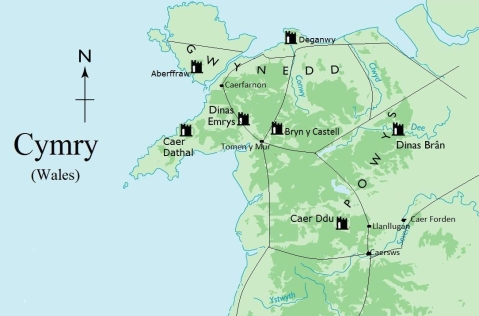
––––––––
Book One in The Last Pendragon Saga
––––––––
The Last Pendragon
––––––––
by
Sarah Woodbury
The Last Pendragon
––––––––
Rhiann knows that demons walk the night. She has been taught to fear them. But from the moment Cade is dragged before her father’s throne, beaten and having lost all of his men to her father’s treachery, he stirs something inside her that she has never felt before. When Cade is revealed to be not only Arthur’s heir but touched by the sidhe, Rhiann must choose between the life she left behind and the one before her—and how much she is willing to risk to follow her heart.
––––––––
The Last Pendragon is the first book in The Last Pendragon Saga.
––––––––
The Complete Series reading order: The Last Pendragon, The Pendragon's Blade, Song of the Pendragon, The Pendragon's Quest, The Pendragon's Champions, Rise of the Pendragon, The Pendragon's Challenge, Legend of the Pendragon.
A Brief Guide to Welsh Pronunciation
––––––––
Names derived from languages other than English aren’t always easy to pronounce for English speakers, and Welsh is no exception. As far as I am concerned, please feel free to pronounce the names and places in this book however you like. I want you to be happy!
That said, some people really want to know the ‘right’ way to pronounce a word, and for them, I have included the pronunciation guide for Welsh sounds below.
Enjoy!
––––––––
c a hard ‘c’ sound (Cadfael)
ch a non-English sound as in Scottish ‘ch’ in ‘loch’ (Fychan)
dd a buzzy ‘th’ sound, as in ‘there’ (Ddu; Gwynedd)
f as in ‘of’ (Cadfael)
ff as in ‘off’ (Gruffydd)
g a hard ‘g’ sound, as in ‘gas’ (Goronwy)
l as in ‘lamp’ (Llywelyn)
ll a breathy /sh/ sound that does not occur in English (Llywelyn)
rh a breathy mix between ‘r’ and ‘rh’ that does not occur in English (Rhys)
th a softer sound than for ‘dd,’ as in ‘thick’ (Arthur)
u a short ‘ih’ sound (Gruffydd), or a long ‘ee’ sound (Cymru—pronounced ‘kumree’)
w as a consonant, it’s an English ‘w’ (Llywelyn); as a vowel, an ‘oo’ sound (Bwlch)
y the only letter in which Welsh is not phonetic. It can be an ‘ih’ sound, as in ‘Gwyn,’ is often an ‘uh’ sound (Cymru), and at the end of the word is an ‘ee’ sound (thus, both Cymru—the modern word for Wales—and Cymry—the word for Wales in the Dark Ages—are pronounced ‘kumree’)
Map of Wales
––––––––
